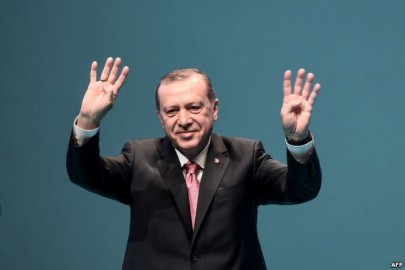The war in Iraq in 2003, despite the geopolitical disguise, had an overtly geopolitical nature because Iraq was supposed to become a global storage of oil with a view to critical times which was needed for achievement of the manageable thermonuclear reaction.
Later on the “central government” in Baghdad tried to secure its country’s sovereignty, and it was not clear whether pan-Arab or nevertheless Shiite ambitions were expressed.
One way or another, the leading powers of the West tried to create an oil source under the control of the Kurds in the north of Iraq, independent from OPEC and the Turkish roads and the Gulf of Ormuz in case South Iraq where the greater part of the Iraqi oil is concentrated comes out of control. The game of involvement of Turkey in the military conflict with the “central government” of Iraq was related to this.
For its part Turkey made it clear to NATO and the United States that if involved in military conflicts it will demand their participation in specific defense assistance. Turkey is using the developments in Syria to clarify relations with NATO and the United States.
The thesis that Turkey’s stance has become an important crisis factor in NATO has become “legitimate” in the international political discourse.
Turkey has, nevertheless, been involved in the “Vietnam” between Tigris and Euphrates which it was cautiously avoiding because the main purpose was to redraw the borders of the region, including Turkey. But how can the creation of the oil “barrel” be combined with the Turkish “Vietnam”.
Can the “barrel” wait? At least, Turkey warns NATO and the United States that if there is a need for war, they will participate too. In other words, “Vietnam” will be for everyone.
Will this scare the West? NATO’s full participation is possible under the relevant arguments and grounds in line with the NATO Charter.
In the past few years in the United States there have been no arguments over the expediency of Turkey’s membership to NATO. The Americans are trying to say goodbye to the idea of Turkey’s membership to NATO. The Americans do not need Turkey in NATO, and the experts of Pentagon’s think tanks are talking about this openly.
The United States will agree if Turkey voluntarily leaves NATO. This idea has been put forth consistently, and one may say that it occurred with regard to Turkey quite quickly, already during Trump’s office.
The contacts between Trump and Erdogan have had nothing in common with the political issues. Rather superficial relations with hostile elements have been created between the United States and Turkey. The mediation factors – Israel, the Islamic factor, the pan-Turkic context – have no importance at all.
Currently it is too early to talk about the possible exit of Turkey from NATO, this idea is not mature even in Turkey. However, the United States is ready to say goodbye to Turkey.
The United States understands that Turkey’s exit from NATO is an actual issue, and the Americans would feel far more comfortable without it. The issue is the Black Sea – Caucasus and the Near Eastern regions where the United States needs to have new partners and military bases.
The United States is ready to coordinate these problems with the Europeans, which is noticed in the behavior of Germany and France.
Ask me anything
Explore related questions





